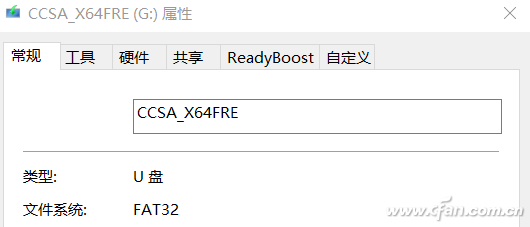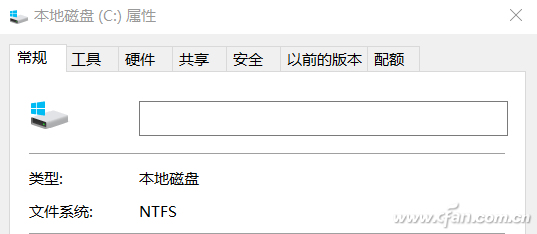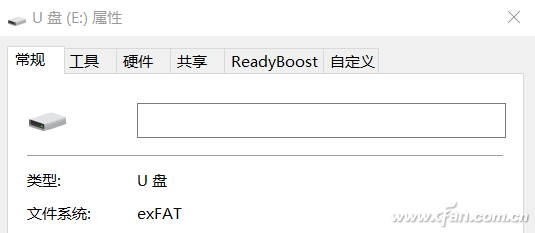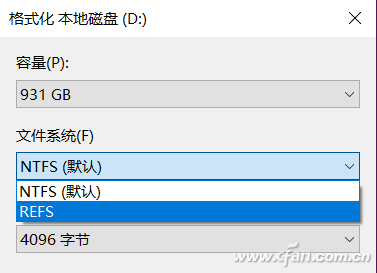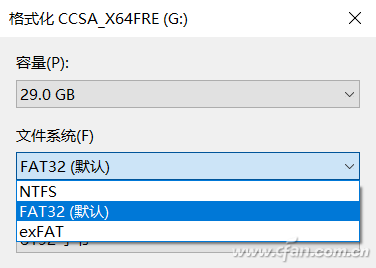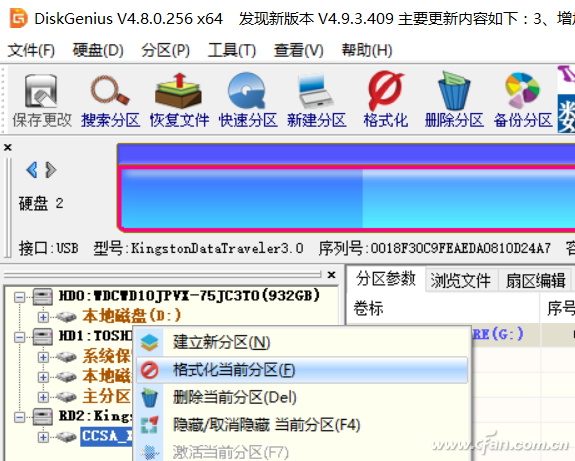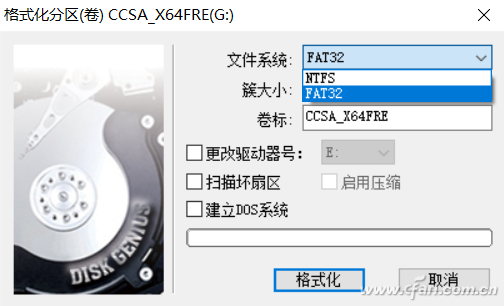Xiao Bian also received a new problem, a small partner said his 64GB U disk formatted in the computer can only choose ExFAT or NTFS, can not choose FAT32, seeking Xiaobian answer, Xiao Bian happens to take this opportunity to talk about the computer now Format problem. If you are too lazy to read, you have the answer in the last paragraph. What's so hot, do you know a few? FAT32 FAT32 is an old format, previously used computer systems are used FAT32 format, Microsoft introduced NTFS 5.0 when Win2000, NTFS has replaced FAT32 when WinXP. Compared with the FAT32 format, the speed is relatively fast, but this format also has several unacceptable disadvantages over time. For example, the FAT32 format does not support single files above 4GB; FAT32 has a minimum cluster size of 4KB. Also caused a waste of capacity, such as 1KB file, the corresponding can only be stored to the smallest memory unit - 4KB cluster; FAT32 usually supports a maximum of 2TB formatted capacity, can not help large hard drives; not only that, FAT32 format the largest The problem is that it is prone to fragmentation, and hard disk performance decreases as fragmentation increases. By now, the biggest value of the FAT32 format is that it is used in small-capacity U-disks. NTFS WinXP began, NTFS format officially entered our computer, this format has the advantage of FAT32 can not be compared, such as enhanced security (FAT32 often once the storage structure is damaged, the entire content can not be restored, NTFS file logging function can be the largest Limits guarantee data integrity); also supports single files over 4GB; support for file compression mechanisms that can improve disk utilization. Most people's computers now use the NTFS format. ExFAT ExFAT is Microsoft's file format for mobile devices (flash storage devices). In fact, its initial name is FAT64. ExFAT format supports a single file over 4GB, and supports over 512TB of formatted capacity (theoretical value is ZB level); excellent read and write performance, fragmentation problems no longer exist; cross-platform support is better than NTFS (support after WinXP SP3 This format, Linux is supported by the Exfat format tool, and supported by MAC OS X 10.6.5 and later). However, because this format is relatively new (in fact, Win7 has already supported it), the popularity is not so ideal. REFS Do you think this is over? Naive! Now Microsoft has introduced a new format: REFS. You see, the FAT format has been updated. NTFS has been introduced for so many years and it should be replaced. The REFS format is actually designed to replace NTFS. The biggest change in this format is the security and scalability (hard disk pooling features used in professional areas), the performance change is almost negligible. In addition, the current REFS format is still very limited, the first can not be used as a system boot disk format (Mr.), the second universality is very poor. However, since it is Microsoft's own "new stuff" mandatory promotion will indispensable, this does not, after the creative update, REFS format is included in the formatting option, and NTFS. Oh, yes, REFS is not suitable for mobile devices. There is no FAT32 Win10 swollen what to do? You may have noticed that since Win7, disks larger than 32GB, whether it is a local disk or a removable disk, there is no FAT32 option in the right-format option, and now the latest creative update Win10, the local disk format only NTFS and REFS options; only ExFAT and NTFS options for removable storage devices (less than 32GB of removable storage and FAT32). Why do you want to format your U disk to other formats? Xiao Bian recommends using third-party tools such as DiskGenius (Baidu search will be able to see), the free version is sufficient. Open the software, right-click on the removable disk to be formatted, and switch the format to select FAT32. 1 minute to understand the format so choose Knowledge speaks so much, in fact, the use of the choice is very simple, Xiaobian think that the local disk (computer system) format is NTFS, REFS can not replace the NTFS format for a long time; mobile disk or U disk format Xiaobian recommended less than 32GB select FAT32, greater than 32GB select ExFAT format on the line. Some people also say that EXT3, 4 and HFS+ format? Currently, the use of EXT4 format under Linux is ideal. Disk performance is much higher than when using the EXT3 format, but it requires regular disk defragmentation; MAC, of ​​course, can only choose HFS+ - but this format efficiency is really low, Xiao Bian is true Do not like, in addition, HFS + format to install software in Win under read and write access will generate a lot of debris, so it is best not to install Win on the MAC and then switch to each other. Incremental Encoder is commonly used, and Absolute Encoder is used if there are strict requirements on position and zero position. Servo system should be analyzed in detail, depending on the application situation. Commonly used incremental encoder for speed measurement, which can be used for infinite accumulation measurement; Absolute encoder is used for position measurement, and the position is unique (single or multiple turns). Finally, it depends on the application situation and the purpose and requirements to be realized. Incremental Linear Encoders,Linear Optical Encoder,Linear Position Encoder,Encoder Bearing Tester Yuheng Optics Co., Ltd.(Changchun) , https://www.yuhengcoder.com
